Radiance #03
Pursuing a Career in Fragrance
APOTHEKE FRAGRANCE Keita Sugasawa
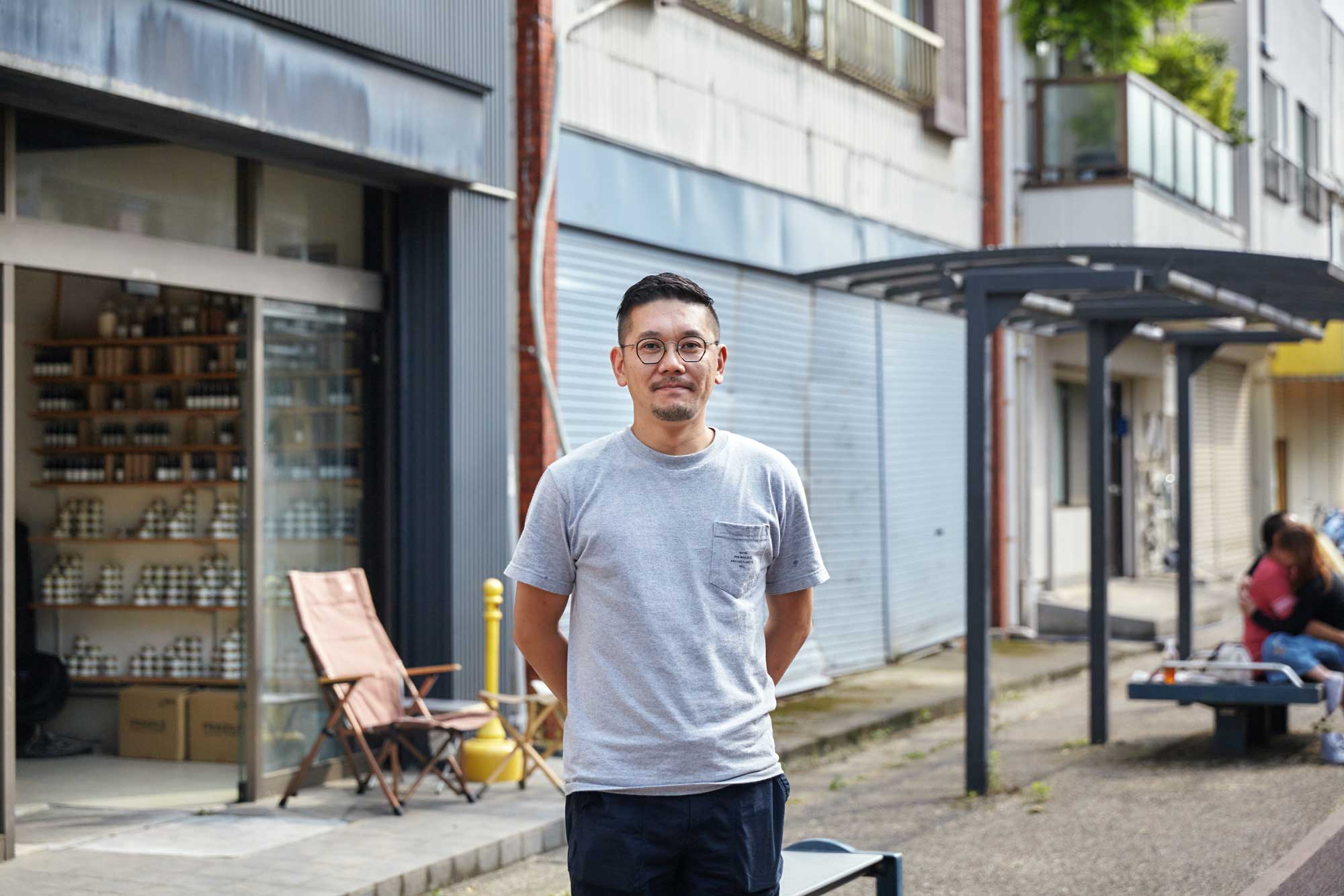
Fragrances bring a richness to life.
Keita Sugasawa is an artisan of aroma, creating individual fragrances by hand.
We need to make sure Apotheke candles are always ready and available.
Beginnings From the Middle East.
The first time I became interested in working with fragrances was at the age of 24, so it must have been around 13 years ago.
At that time, I was working in apparel and often went abroad for business. I visited cities like New York and Singapore, as well as other various places around Asia.
There’s a small district in Harlem, New York. There, you can find a collection of Middle Eastern shops, one of which sells incense and oil. In Singapore, I visited a district where an elderly Middle Eastern man sold incense and fragrant woods. He mixed the aromas for you there in the shop.
Thinking about it now, he simply blended fragrances together, but at the time I really felt that this was a cultural element you couldn’t find in Japan. I wasn’t particularly interested in perfumes originally, but I did enjoy the aesthetic appeal of those deeply cultural shops.
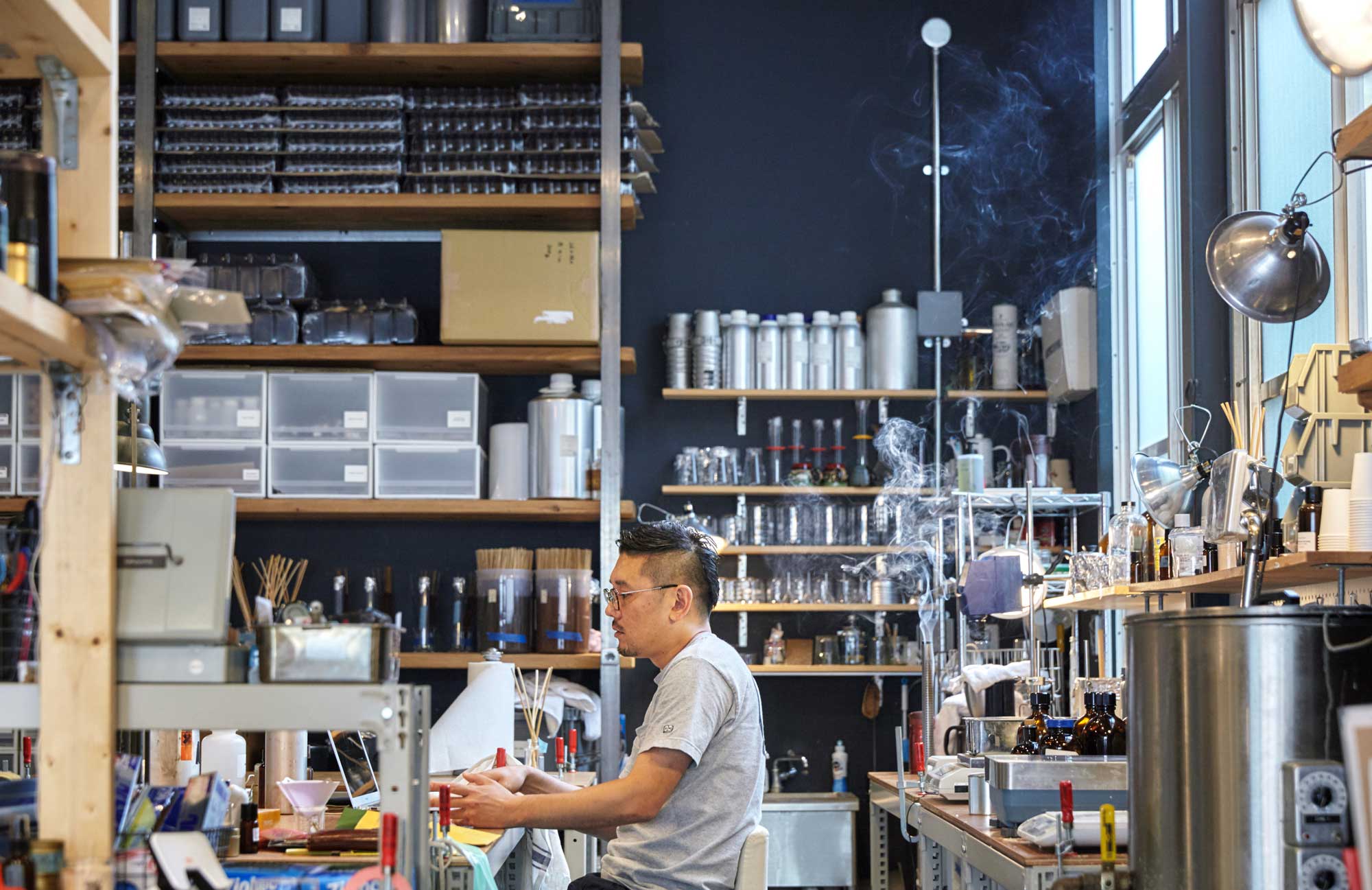
An Enthralling Fragrance Shop.
My first impression was of all the mirrors and glass. The shelves were made of glass, and the back wall was a mirror. I saw fancy crystal whiskey bottles filled with perfume, all lined in a row. The countertop was completely covered in perfume bottles. There were even some rolled-up turbans on display.
And a thickly bearded gentleman was standing behind the counter. As soon as I entered the shop, the gentleman offered me tea and asked me what type of scents I preferred. After answering various questions and testing fragrances, I found it. The one scent I was looking for. The man began mixing fragrances proudly. He eventually finished, handing me my own special fragrance. As I think back, the inside of the fragrance shop was in fact quite cluttered.
Searching Night After Night.
When I quit my job at the clothing store, I was in debt. So I found a different job at a trading company that dealt in raw plastics. I worked there for a while, but it was pretty slow. I only worked there to pay off my debts, and I didn’t go out much after work. I didn’t have the money, anyway.
So, I found myself searching the internet for the interesting things I saw when I was in the Middle Eastern districts. For example, I would search for how to buy fragrances.
What I didn’t understand at the time is that any fragrance is simply a product of organic chemistry. When I tried to make my own candles, I was way out of my league. I wasn’t very successful turning the fragrances I bought from the Middle East into candles. The surface of the candle would deform, or the flame would burn out too quickly.
I declared myself a failure, concluding that I simply didn’t know the right ratios when mixing. I thought the reason my candles melted too quickly or didn’t emit an aroma was due to a fundamental lack of understanding.
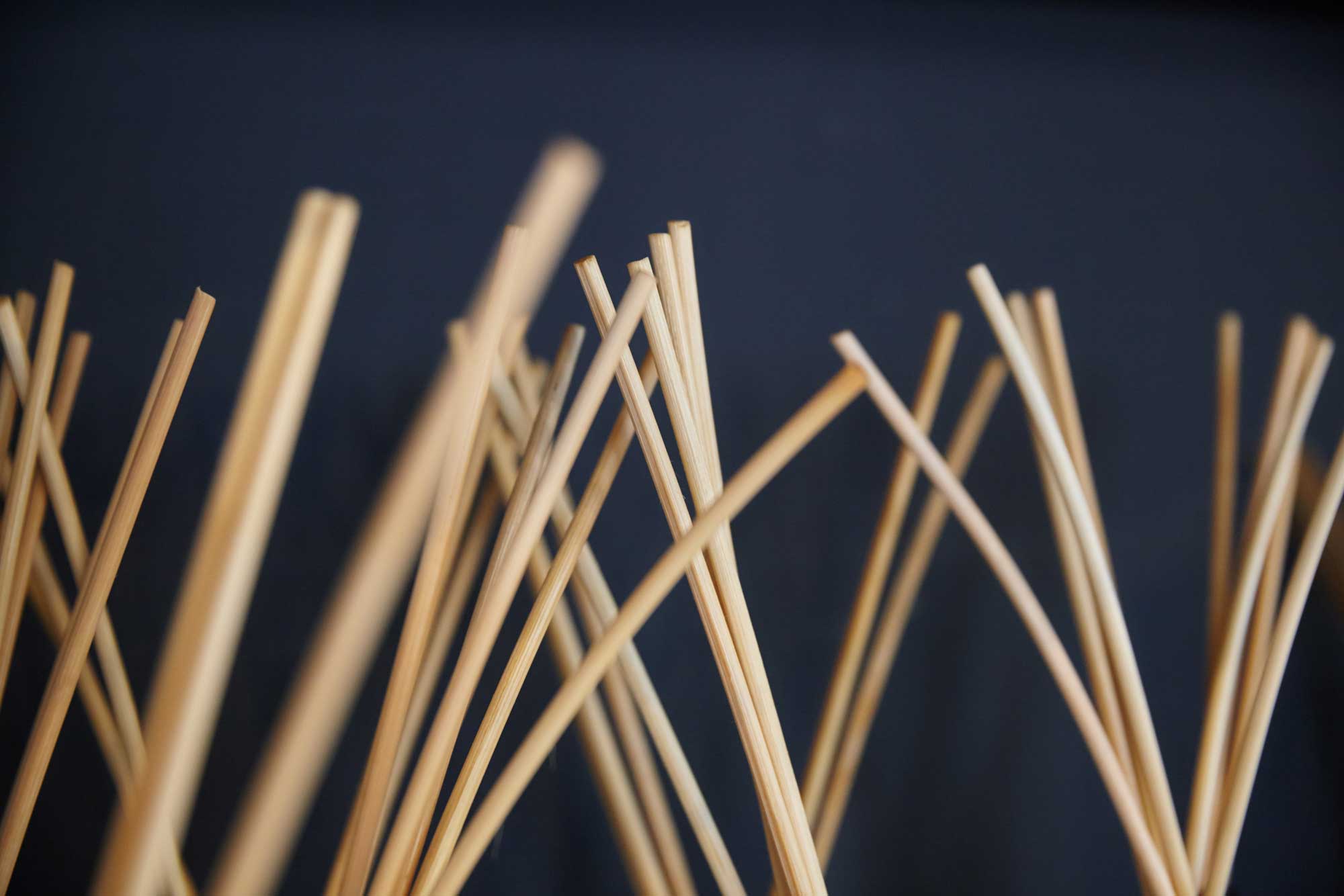
Making it Myself.
Working at the raw plastics trading firm, I really had no idea what I was selling. I didn’t think I was cut out for work in a business I didn’t understand. I wanted to make and sell my own products.
When I decided to try my hand at making fragrances, I had the option of training at a Middle Eastern fragrance shop. But it happened that there was a fragrance company hiring for a position in manufacturing. It was a company that sourced natural fragrances from all over the world and sold them to Japanese fragrance companies.
At the interview, I talked about how much I admired the Middle Eastern aesthetic, but all I got in return were blank stares. Maybe my expectations were a bit off at first.
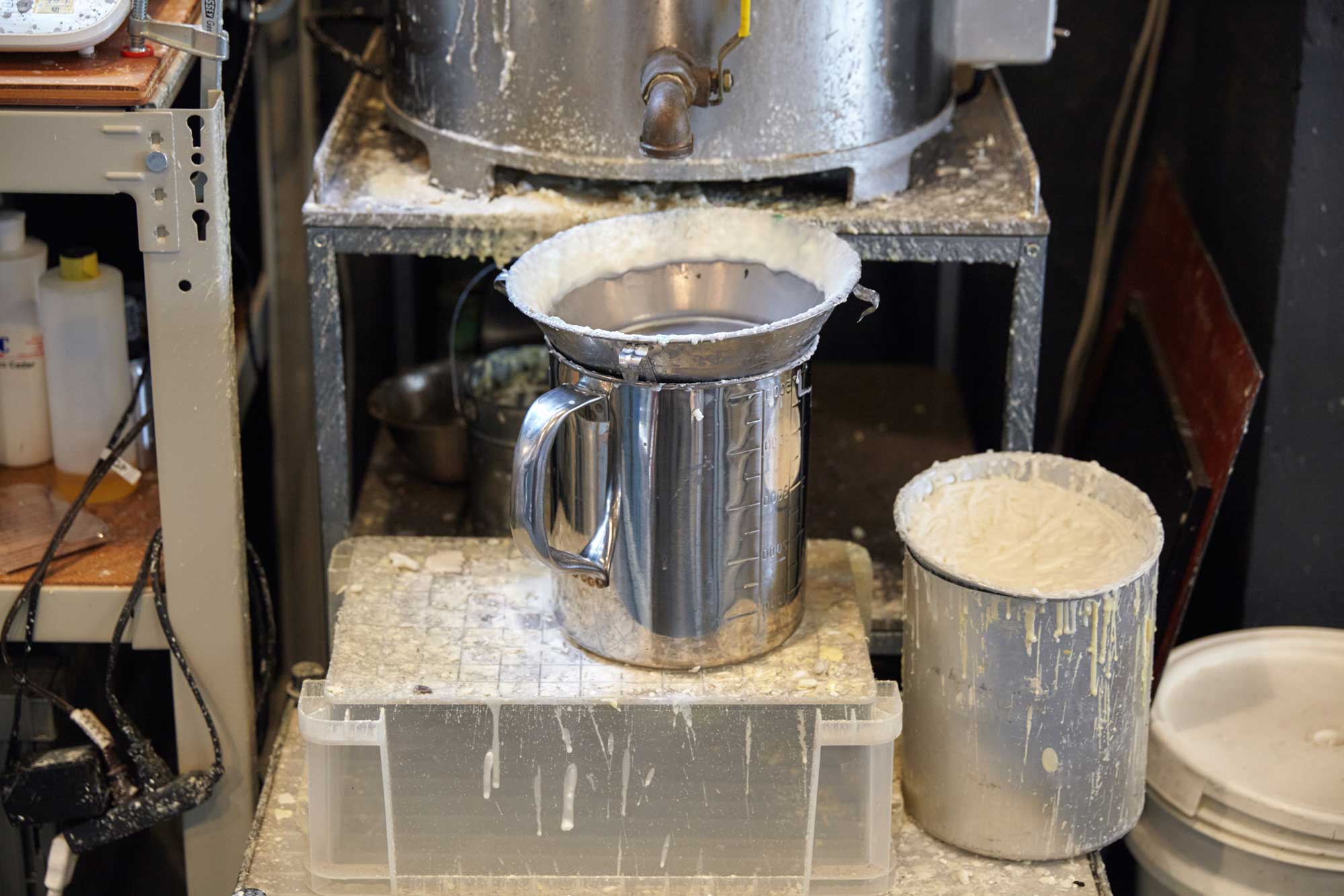
Diligent in the Extreme.
The company sourced ingredients from so many countries...France, the USA, India, Indonesia, China... I was sent on business trips to extraction factories in the deep interior of Sumatra or Mysore, India. Places where they processed sandalwood.
I decided that I wanted my work to involve something like what we do now at Apotheke Fragrance. Whenever I had free time, I would study about fragrances. I used the chemistry dictionary we had at the company to study. And it was nice that they let me do pretty much anything I wanted.
The president of the company would praise me for being so diligent in my research and suggested other projects, which I took on. Making pamphlets and other such work. Of course, I had to gain work-specific knowledge, but I always wondered how to relate what I was doing to making candles. All I could think about was making products of the type we now sell at Apotheke.
I asked subtle questions to my boss, trying to see how certain materials could be made into candles. Something like, “If you just mixed this in with a candle, there wouldn’t be any aroma, right?” [laughs]
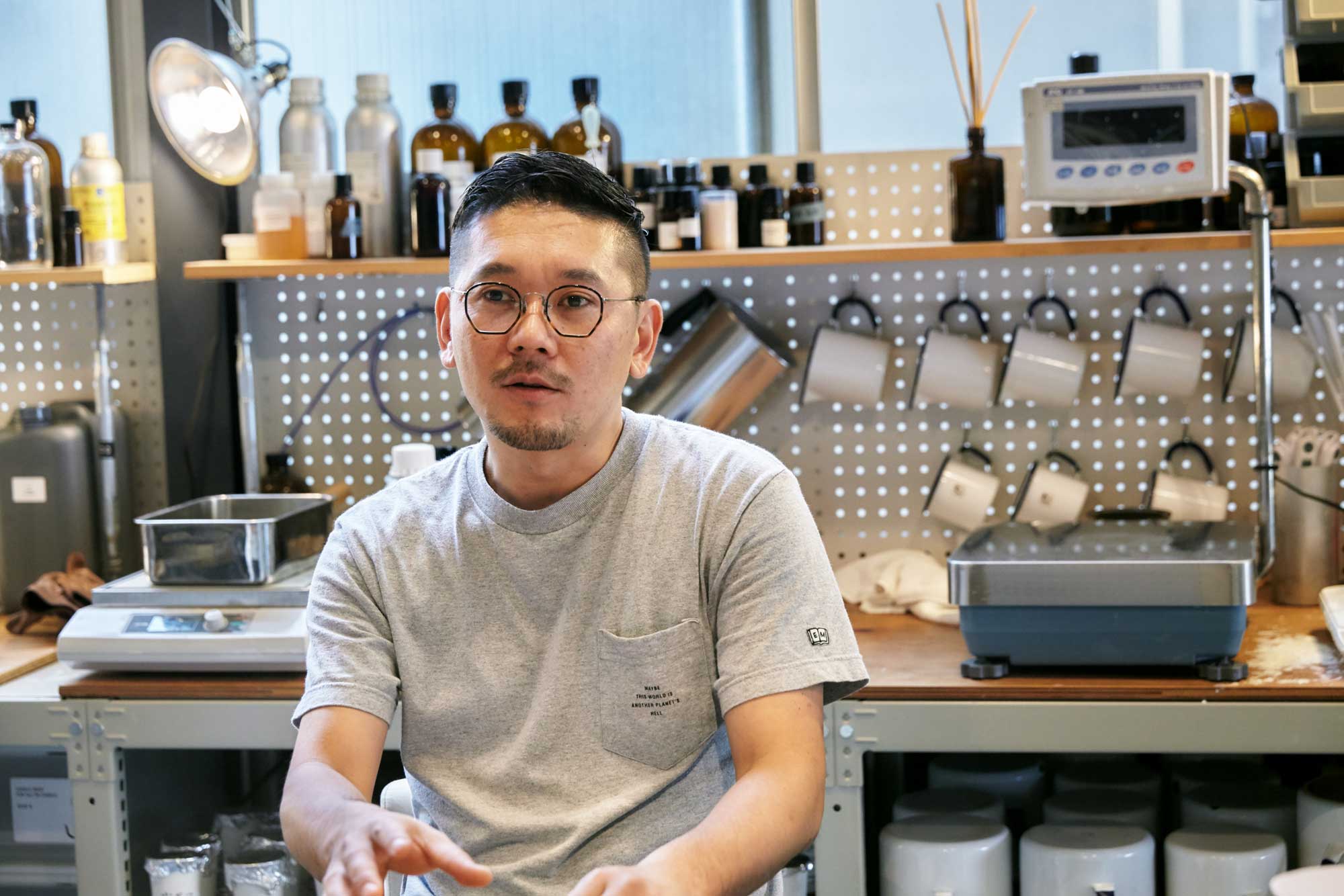
10 Types of Fragrances in a Year.
I joined the company in 2010, and in 2011, I launched Apotheke. At first, I made and sold 10 kinds of candles. That was my plan for the first year. I thought 10 types was a good starting point. Floral, woody, fruity aromas, and the like.
In the meantime, I had no intention to quit my job at the fragrance company. I couldn’t even conceive of quitting, since I could test all the fragrances I wanted. I figured that if I did all the mixing myself, I would eventually have to source about 3,000 different kinds of natural and synthetic fragrances. I used my salary as well as all the money I made selling candles to source ingredients.
Fragrances cost something like 100,000 yen or 300,000 yen per kilo, and some you have to buy in bulk drums. I didn’t have that kind of money, so I’d ask my company if they would let me have small quantities here and there. We did business with manufacturers all over the world, so I would ask if they could sell to me in volume less than bulk quantity.
Even after 7 years, I hadn’t finished sourcing the varieties and amounts I needed. A long time ago, I used to be a DJ. To me, sourcing fragrances was very similar to collecting albums.
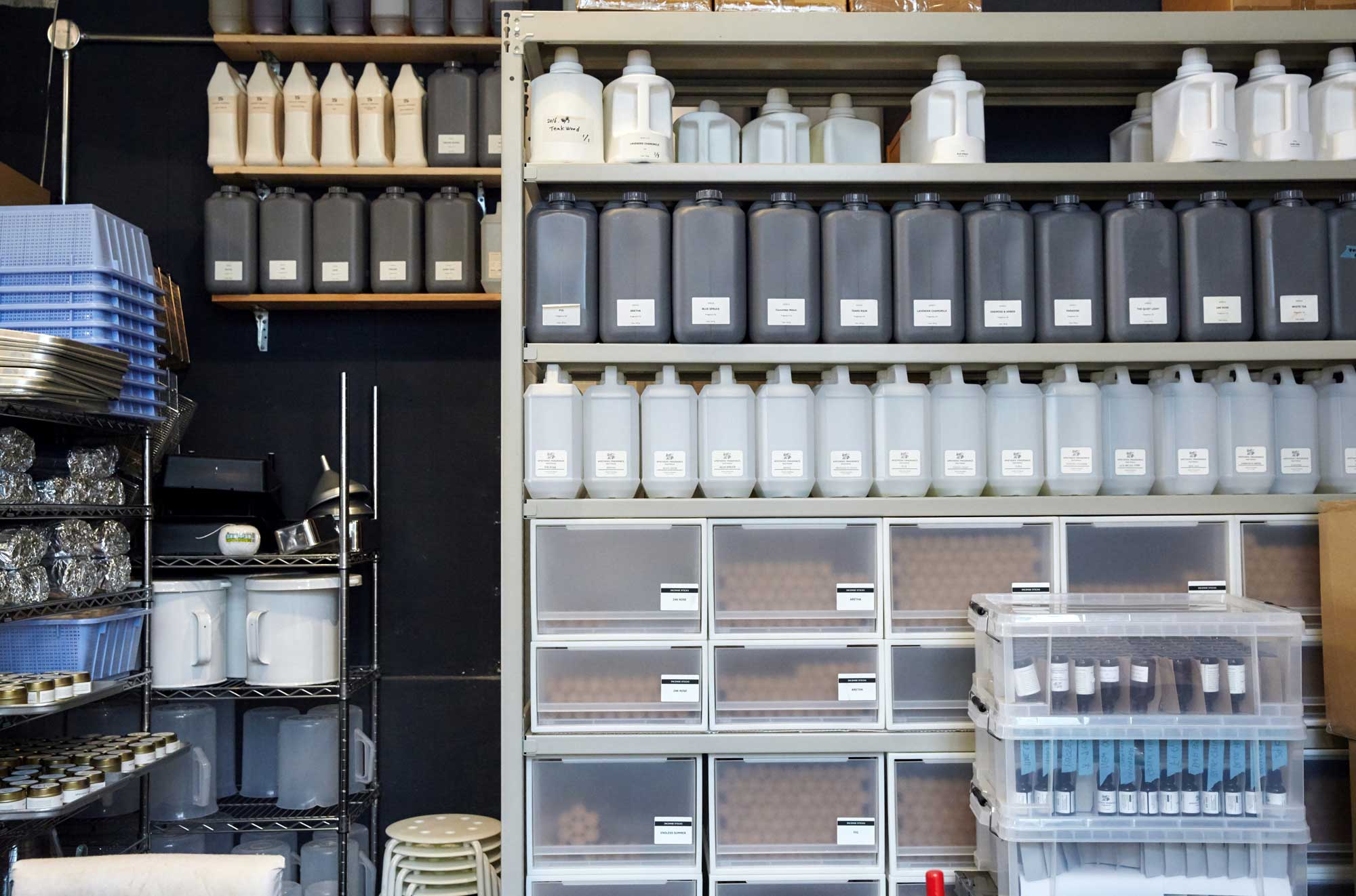
From Small Beginnings.
When I joined the fragrance company, I soon learned that manufacturers do not mix their own fragrances. The manufacturers buy ready-made fragrances from the fragrance companies, labeling these fragrances as their own products. I realized that if no one was mixing their own fragrances, I was in the best position to do so.
In those days, I would sometimes visit New York. Entrepreneurs from small workshops such as Mast Brothers Chocolate had begun to make names for themselves. In the end, I decided it was a good idea to do my own production. Japan isn't a place where one can extract raw materials. I decided to buy the raw materials from elsewhere and mix them myself to create my products. I thought that would be a good way to brand myself.
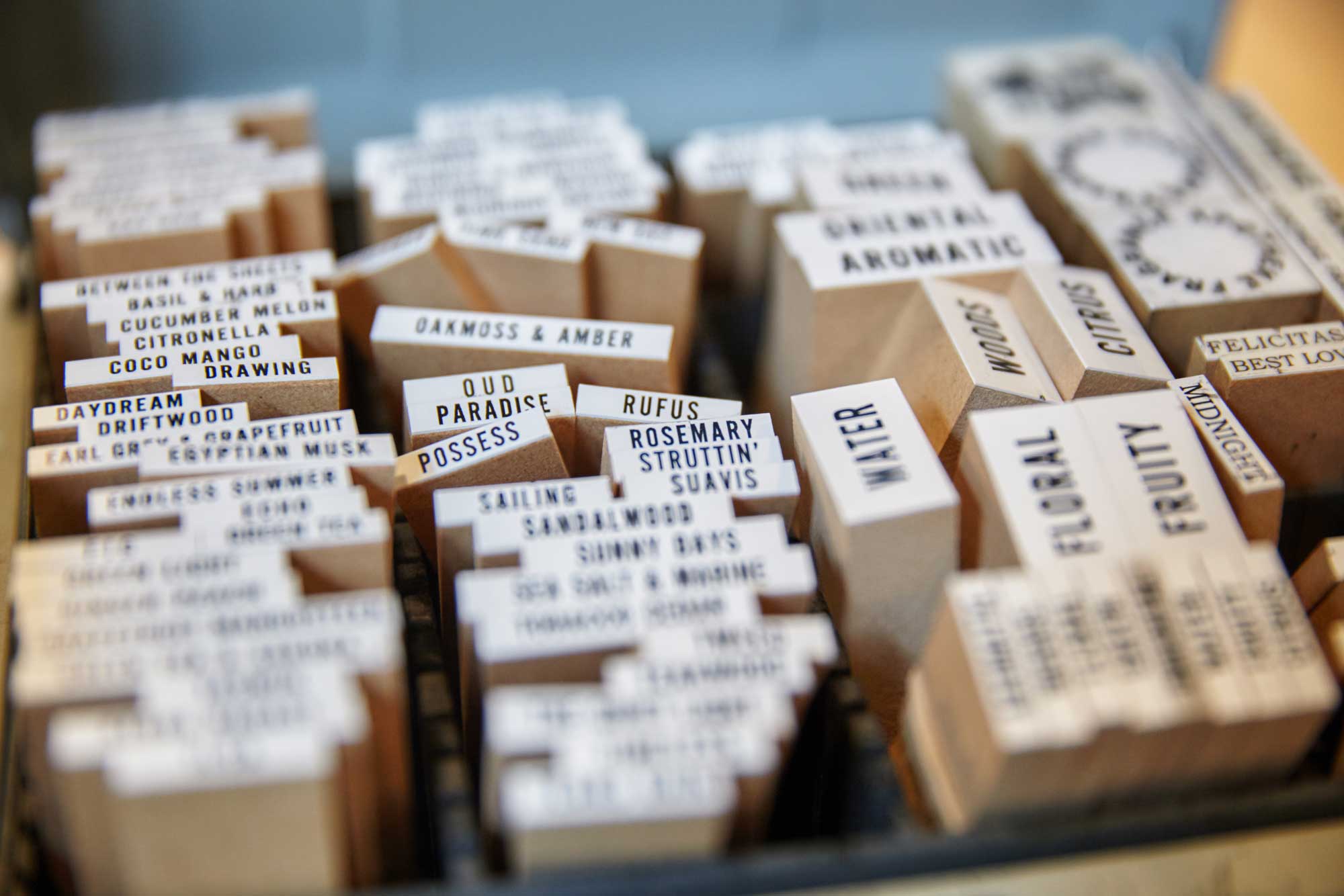
Wedding Gifts.
From the very beginning, people liked my candles. I made them as a gift for my best friend's wedding, and word spread from there. These were tin candles with black labels at the time. It was summer at the time. We don’t make those candles anymore, but I think the aroma was summer breeze.
It turned out that some of the guests liked the candles and took them home. At some point the president of Acme Furniture, which has become a long-time business, now, found my candles, and word of mouth spread quickly. I still worked at the fragrance company every day until 5 p.m., so I had no choice but to work on my business at night.
I’m a bit embarrassed to say that I only worked at a fragrance company for seven years. At some point when Apotheke is doing well on its own, I’d like to go back to study again at a fragrance company. Maybe after I work for another 20 years I can be considered a master.
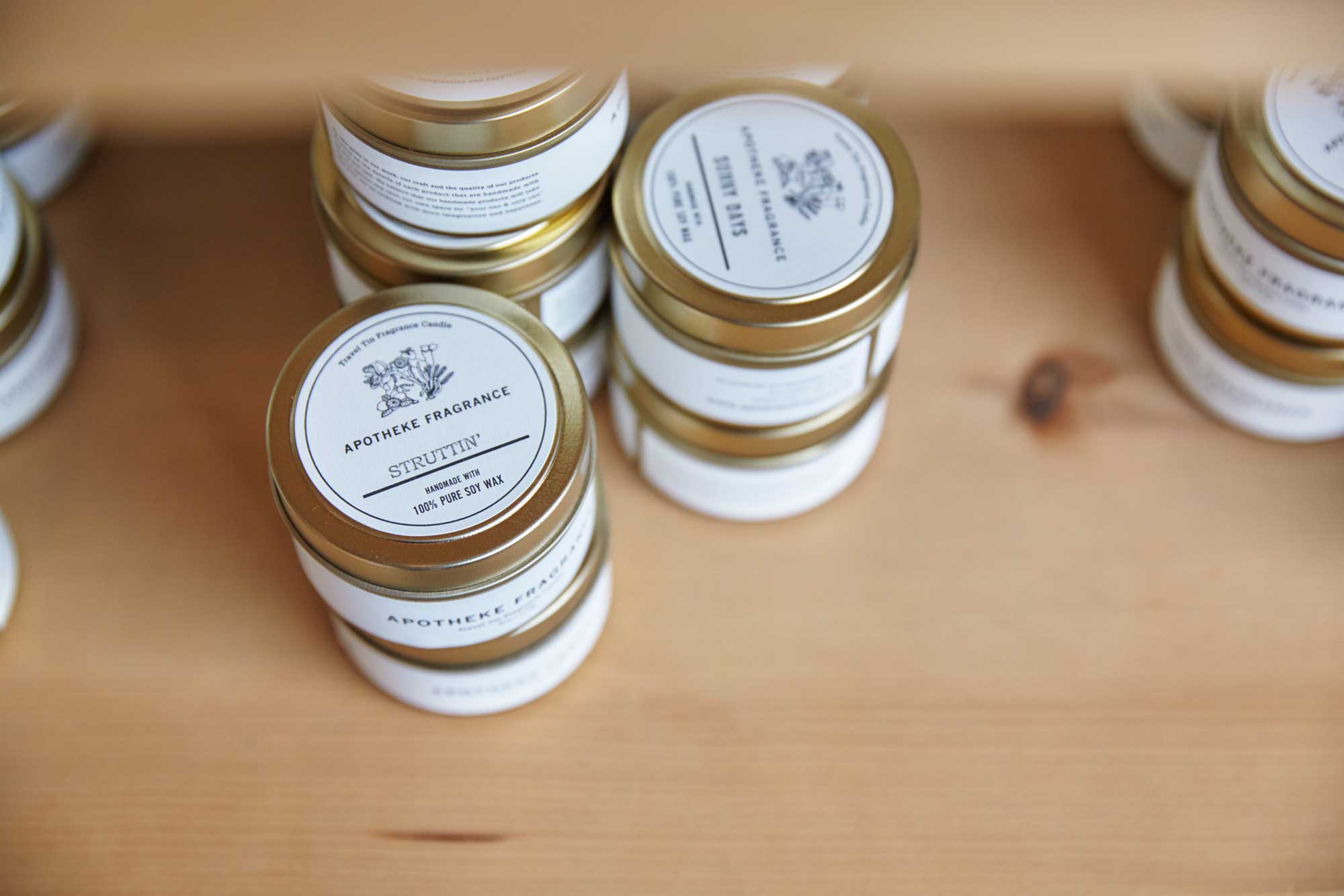
Refrain From Influencing the Customer.
We currently offer 35 kinds of fragrances, but I want to offer hundreds. I want to create this kind of lineup, rather than being a pretentious fragrance shop. We offer a great range of varieties, and we allow each person to choose according to their preference. I begin by suggesting how much would be a suitable amount in volume, and let the customer choose the aromas they like.
If I explained fragrances in detail, then the customer would be swayed to buy based on whatever I said. Scents are interesting in that each person will have their own impressions. They might say that something smells like the bathroom at an acquaintance’s house. Maybe they think a fragrance smells repugnant.
I think it’s nice for customers to enjoy fragrances in their own way, with their own interpretations. This is why I prefer not to add in my own stories or explanations. It’s like a prescription. I only provide information about the ingredients of the fragrance. This is how we do it now.
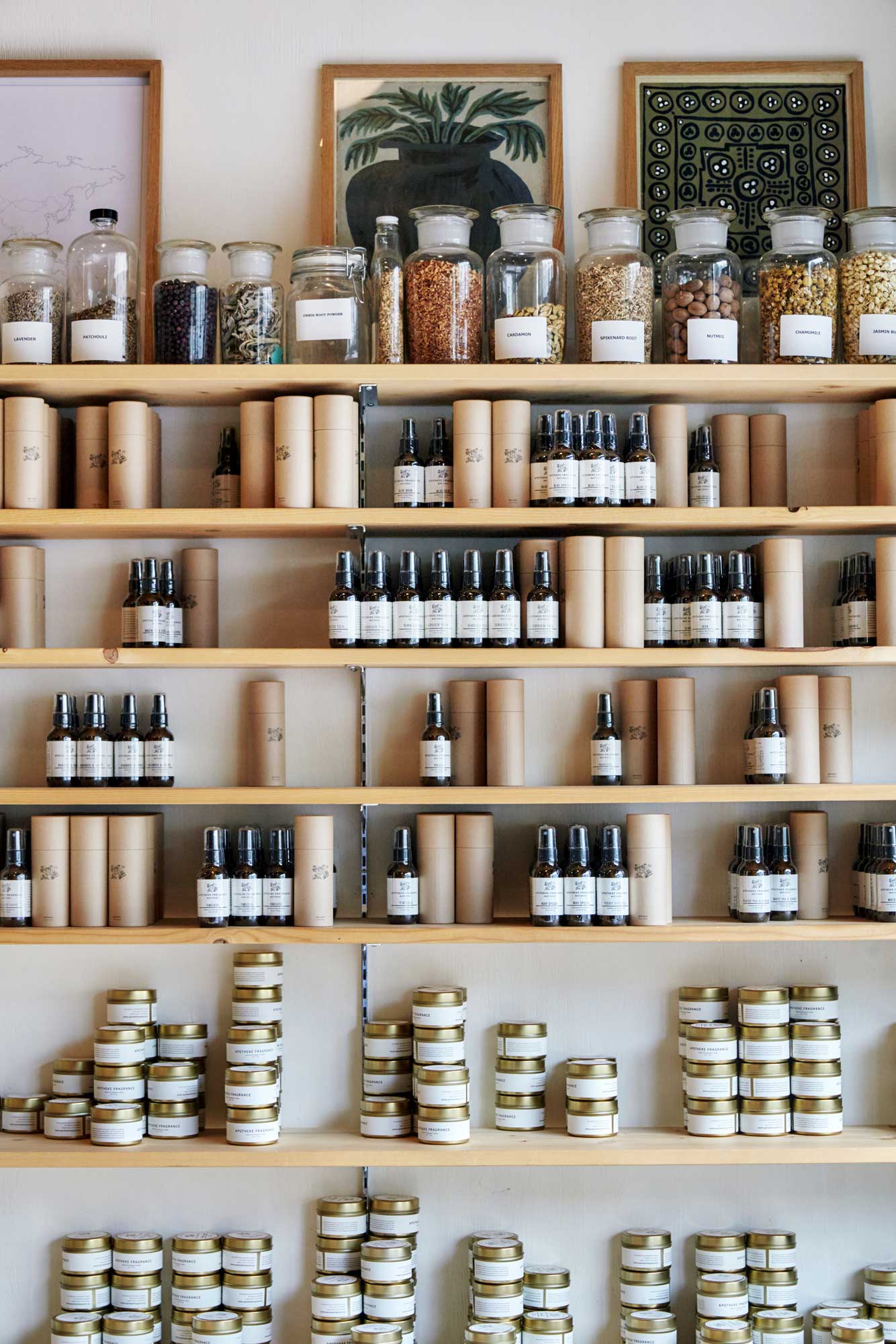
Like a Pharmacy.
I chose the name Apotheke on my own. I think it's a word that tends to come up when learning about fragrances. The raw ingredients for fragrances come from medicinal herbs. Pharmacies also have a long history of blending and selling medicinal herbs in Europe.
I first heard the word from a bar in New York city called Apotheke. It was located in the former site of an opium den, but was later remodeled. The bar serves liqueurs such as absinthe. When I went to the bar, I thought the name was interesting and had a botanical quality. Drinks like gin or rum are distilled, as you may know. The process of distillation also plays a part in creating fragrances.
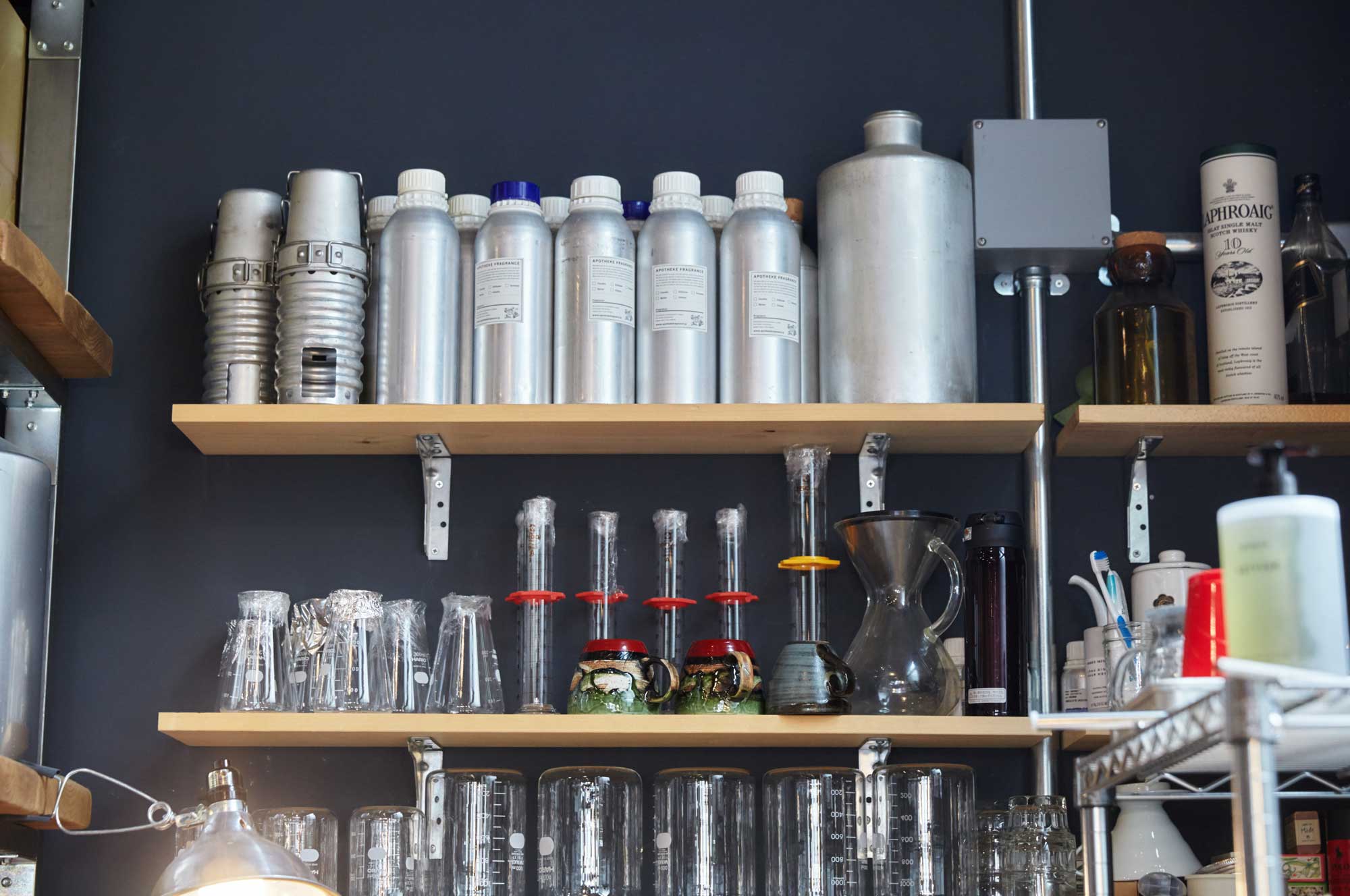
Nose Training.
I’ve become quite sensitive to bad smells. I would test myself, trying to identify aromas. For example, pyrazine is a component in the aroma of coffee. When I started dealing with pyrazine here in the workshop, I immediately though of coffee.
This ability comes from training. I don't think people are born with a good nose. It’s just a matter of remembering scents. Even I forget, sometimes. When I first joined the fragrance company, I would sniff fragrances intently for a long time, every day. It became a daily routine, and I made a list, repeating it every morning in earnest. I make what you might think of as prescriptions. That’s something I would always do when doing the mixing myself.
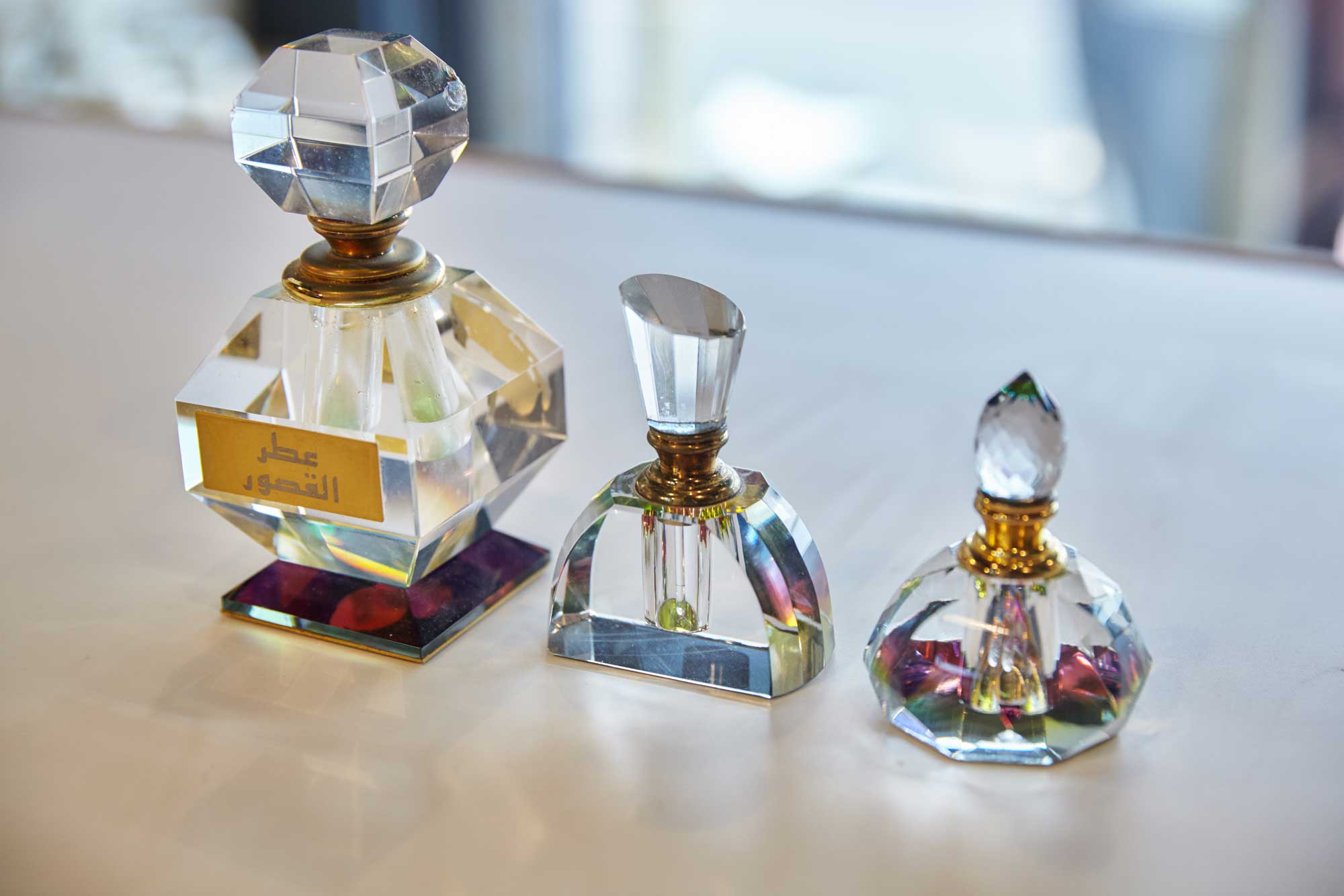
Always Searching.
I kind of regret that I put my foot in the door of such a strange business. It takes money and effort. It really wasn’t a business that someone like me could just start.
I’m sure many people think the work I do is calm and peaceful. But it really isn’t like that. It’s hard, physical work that involves rolling metal drums around and such. We melt ingredients in a kettle and use beakers to combine fragrance and wax… This is a Noda Horo enamel, which is quite good. It may be heavy, but it keeps the scents from transferring. We also use induction heating, which can be quite convenient.
The gray bottle over there is exclusively for fragrances. I think it's really cool to use. At first, I only cared for the fragrances, but I eventually grew interested in these kinds of tools and packaging as well. There aren’t many model cases for what I’m doing now, so it’s true that I’m always searching for the best way. At some point, I would love to open a Middle Eastern-style shop.
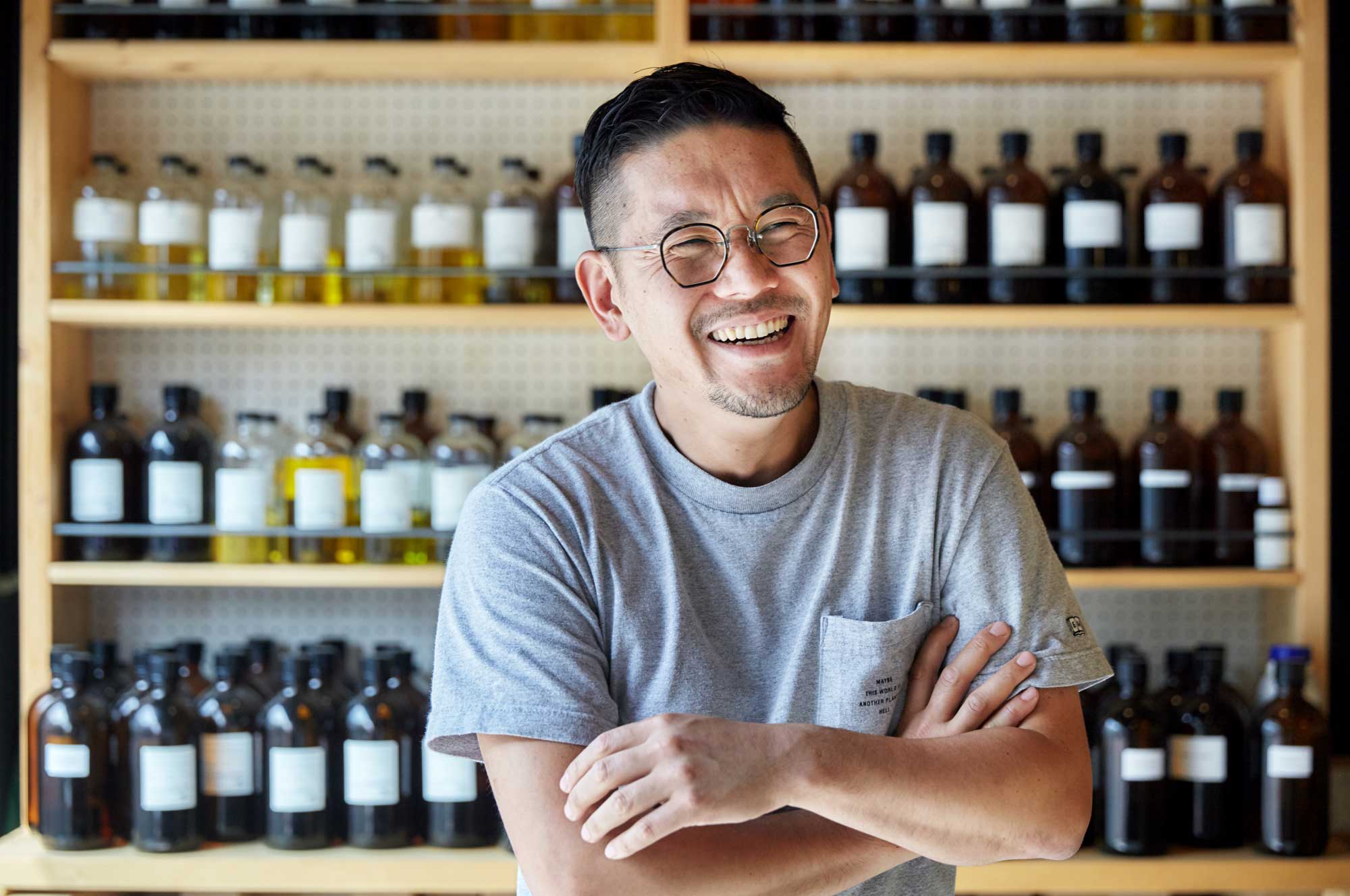


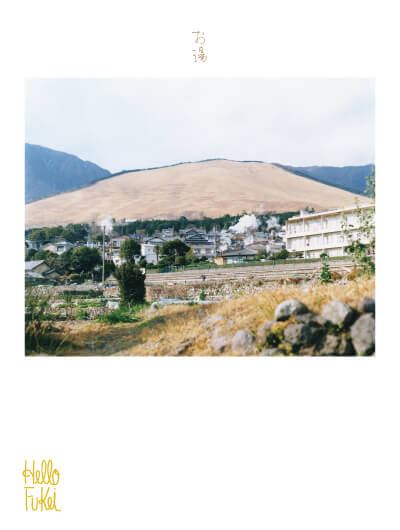
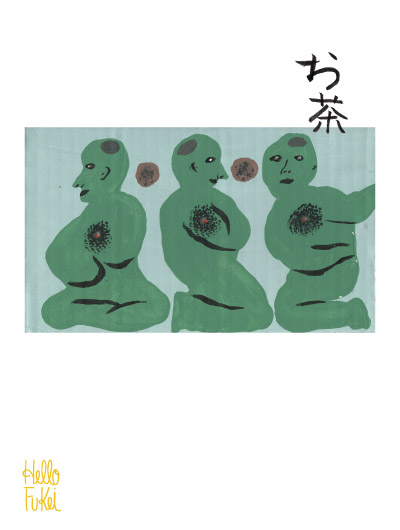
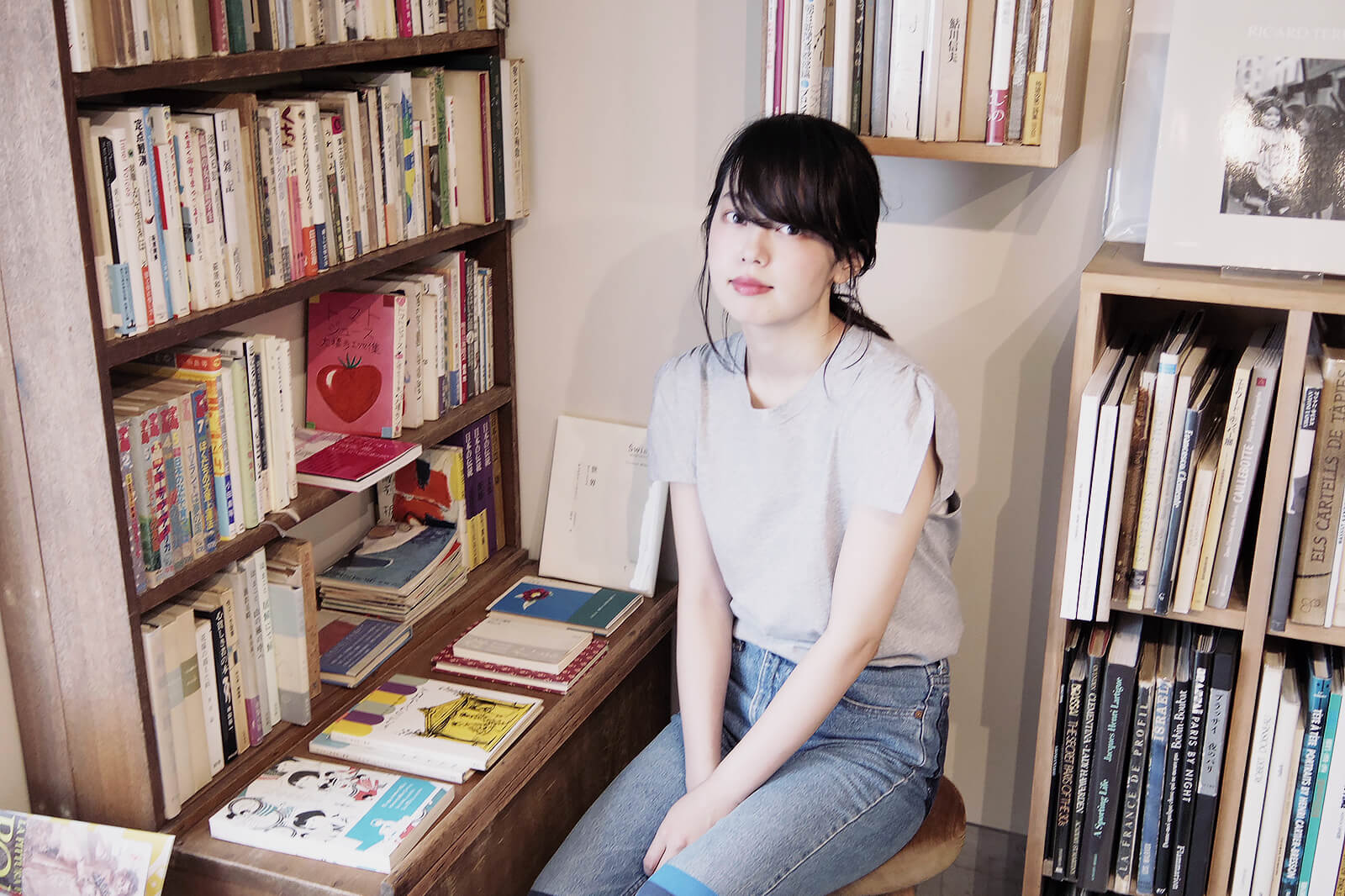 #02 青柳文子
#02 青柳文子
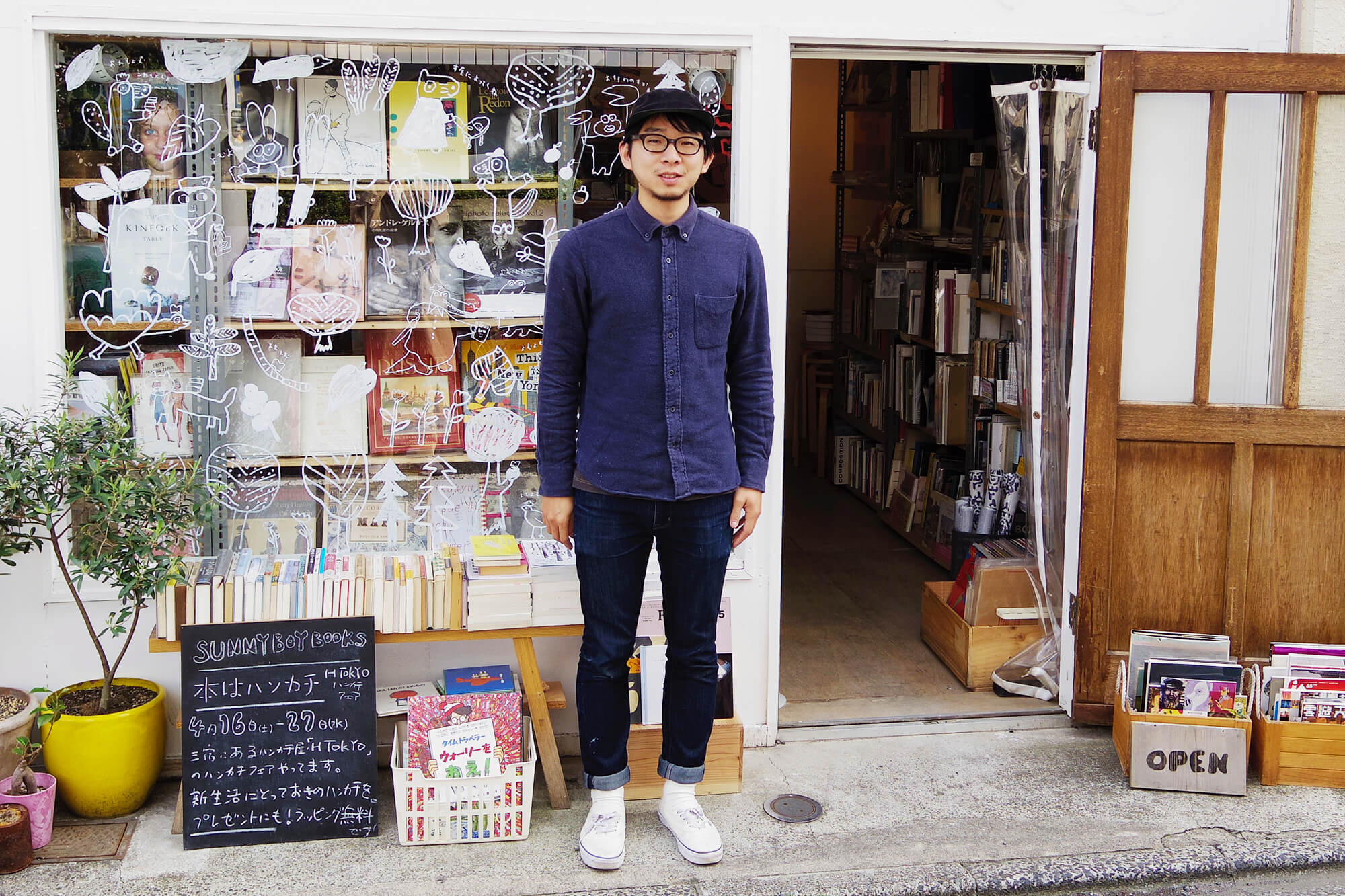 #01 SUNNY BOY BOOKS 高橋和也
#01 SUNNY BOY BOOKS 高橋和也